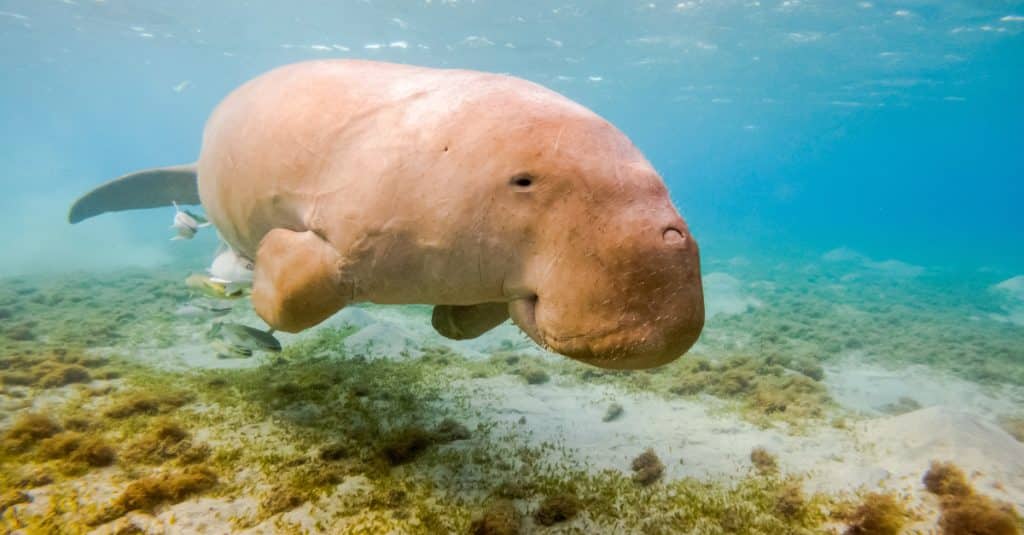The International Union for Conservation of Nature (IUCN) updated its Red List of Threatened Species on 9 December 2022. This year the organisation is focusing on dugongs. These large herbivorous marine mammals are joining the ranks of endangered species, particularly the populations of East Africa and New Caledonia, a French territory made up of dozens of islands in the Coral Sea in the southern Pacific Ocean. “The dugong is vulnerable throughout its range and the East African populations are now Red Listed as Critically Endangered,” the IUCN said.
According to the organisation, there are only about 250 individuals left in East Africa. The main threats to this mammal are linked to humans. The main threats to the dugong are related to humans, particularly because of “involuntary capture” in fishing gear. “The dugong is also a victim of boat collisions and the disappearance of the seagrass on which it feeds,” explains Evan Trotzuk, who led the assessment of the Red List in East Africa.
An increase of 649 endangered species
Other species have also been added to the Red List. Among them, the Caribbean pilar coral, which has been downlisted from Vulnerable to Critically Endangered. Its populations have declined by more than 80% over most of its range since 1990.
The IUCN also highlights the case of abalone, shellfish harvested for sale as “some of the world’s most expensive seafood”, writes the organisation, which classifies 20 of the 54 abalone species as “endangered”. “In South Africa, poaching by criminal networks has devastated Mida abalone populations,” the IUCN says. Its red list now includes 150,388 species, 42,108 of which are threatened with extinction, compared with 41,459 in the last update, which dates from July 2022. That’s 649 new species threatened with extinction in the space of four months.
Read also-IUCN Red List, biodiversity loss will be accentuated in Africa?
“With our limitless appetite for uncontrolled and uneven economic growth, humanity has become a weapon of mass extinction,” said António Guterres, Secretary-General of the United Nations (UN), at the opening of the 15th United Nations Conference on Biodiversity (COP15), which runs until 19 December 2022 in Montreal, Canada.
Boris Ngounou
